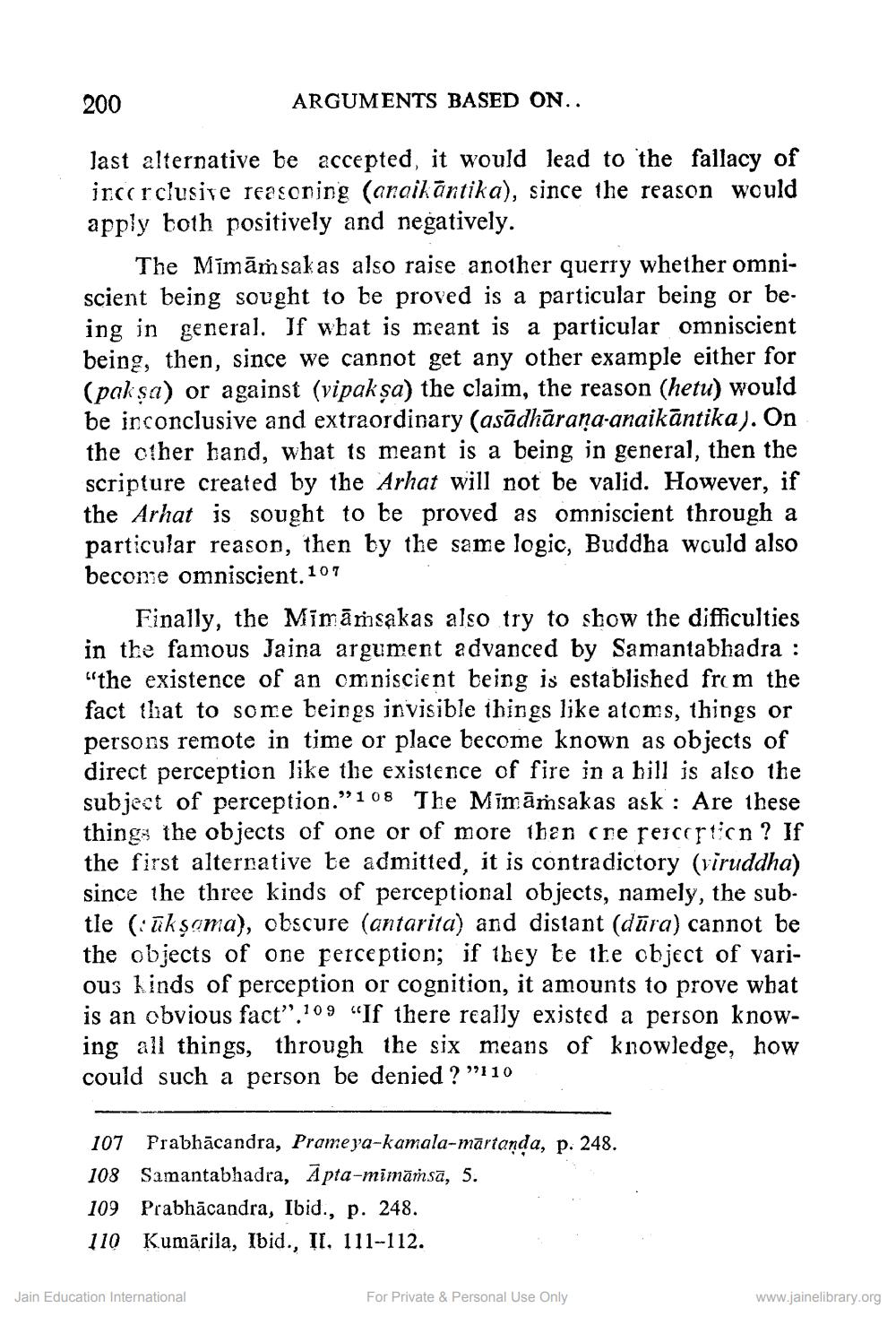________________
200
ARGUMENTS BASED ON..
Jast alternative be accepted, it would lead to the fallacy of incarclusive reasoning (anaikāntika), since the reason would apply both positively and negatively.
The Mīmāṁsakas also raise another querry whether omniscient being sought to be proved is a particular being or being in general. If what is meant is a particular omniscient being, then, since we cannot get any other example either for (paksa) or against (vipak şa) the claim, the reason (hetu) would be inconclusive and extraordinary (asādhāraṇa-anaikāntika). On the other hand, what ts meant is a being in general, then the scripture created by the Arhat will not be valid. However, if the Arhat is sought to be proved as omniscient through a particular reason, then by the same logic, Buddha would also become omniscient. 107
Finally, the Mimārsakas also try to show the difficulties in the famous Jaina argument advanced by Samantabhadra : “the existence of an omniscient being is established from the fact that to some beings invisible ihings like atoms, things or persons remote in time or place become known as objects of direct perception like the existence of fire in a bill is also the subject of perception."108 The Mimāṁsakas ask : Are these things the objects of one or of more than cre reception? If the first alternative te admitted, it is contradictory (viruddha) since the three kinds of perceptional objects, namely, the subtle (:ūkşama), obscure (antarita) and distant (dūra) cannot be the objects of one perception; if they be the object of various kinds of perception or cognition, it amounts to prove what is an obvious fact”. 109 "If there really existed a person knowing all things, through the six means of knowledge, how could such a person be denied ? "110
107 Prabhācandra, Prameya-kamala-mārtanda, p. 248. 108 Samantabhadra, Apta-mũimānsa, 5. 109 Prabhācandra, Ibid., p. 248. 110 Kumārila, Ibid., II, 111-112.
Jain Education International
For Private & Personal Use Only
www.jainelibrary.org




